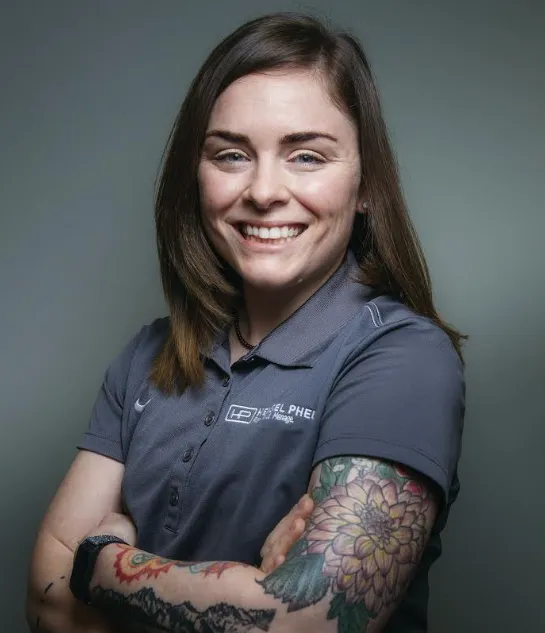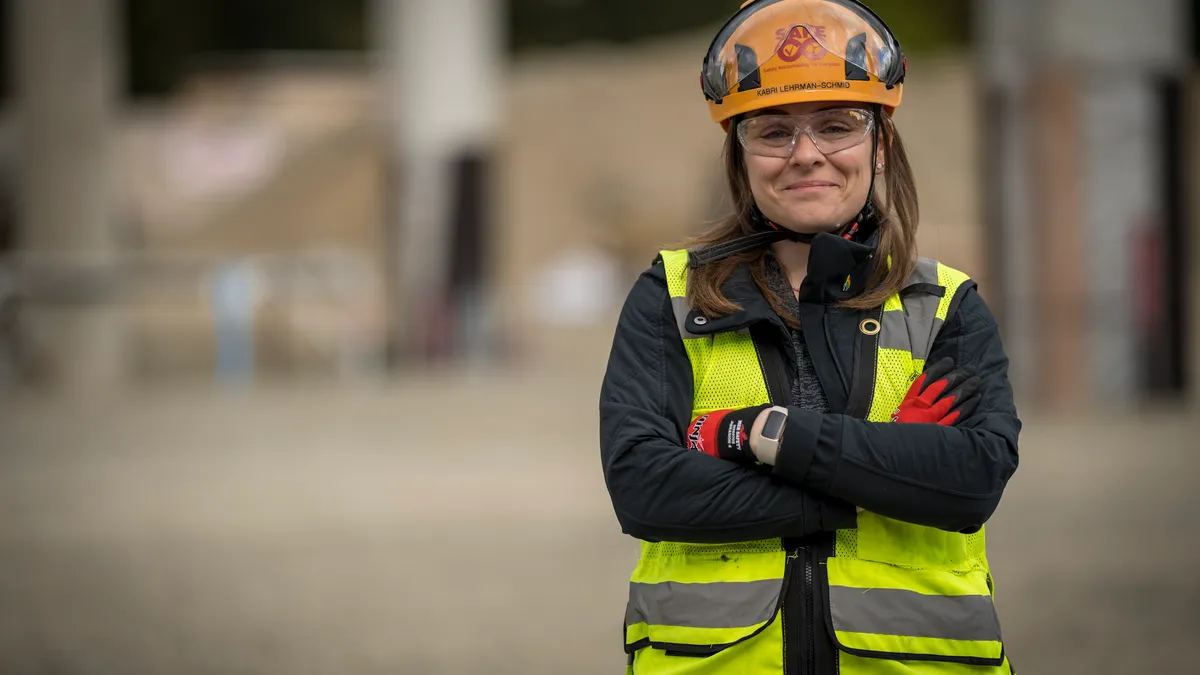This article is one in a series of conversations with women leaders in the construction industry. Click here for past discussions.
Kabri Lehrman-Schmid has spent the last 16 years of her career crisscrossing the country managing $1.9 billion worth of work for Greeley, Colorado-based Hensel Phelps.
During that time, the project superintendent gained experience in both office and field management roles — including project engineer, scheduler, design manager and superintendent — on projects ranging from $14 million high-end lounge spaces to a $494 million airport terminal expansion.

She is currently overseeing construction of the 72,000-square-foot, $102 million Interdisciplinary Engineering Building at the University of Washington’s Seattle campus. There, she is leveraging her background in aviation work to meet the challenges of the project: sequencing work around the public, maintaining operations and meeting the expectations of a wide set of stakeholders.
Here, Lehrman-Schmid talks with Construction Dive about what led her to construction and why she thinks so-called “soft” skills are critical to success in the industry.
CONSTRUCTION DIVE: What is your role in your current project at the University of Washington?
LEHRMAN-SCHMID: As the project’s lead superintendent, team communication and customer service are always top of mind. I am the manager of all field operations — onboarding the trade partner team, developing the schedule, upgrading safety expectations, ensuring quality installation and demonstrating partnership with our client and neighbors.
The Interdisciplinary Engineering Building project has an integrated design-build contract and I’ve been on board since the design started, working with our architect partners at KieranTimberlake to develop a vision for the future of the College of Engineering. It’s pretty special to roll from a design manager role to the lead superintendent on the same project.
What led you to choose construction for your career?
I pursued an engineering degree because it was the option provided to me when I excelled at math and noted an interest in large structures. The opportunities that existed in the construction industry were never recommended or discussed.
What I realized in pursuit of my college degree, and after chancing into an internship that gave me experience on a construction site, was that I was strong at visualizing and communicating logistics, not theoretical mathematics. I also saw that the instant gratification of problem solving face to face on a jobsite was magnetic, and the teamwork and energy that was created through the combined efforts of different skill sets was inspiring.
From my first role as a field engineer, practicing surveying and collaborating with our crews, I knew somewhere deep down that I wanted to make an impact in the field, eventually as a superintendent. My motivation still comes from connecting with a seasoned earthwork foreman about their recommended work sequence, or an owner’s HVAC mechanic about changes to their facility after I’ve studied the documents, listened to the other trades and can offer information or resources that improves that plan and their success.
What are a few of the projects you've most enjoyed working on and why?
My very first project as a full-time employee was the renovation of a historic courthouse in Washington, D.C., that was built in 1820. I still tell the most stories from that project — laying out face of wall for Shotcrete in 3 feet of snow; inspecting underpinning pits under original masonry vaults; the struggle of finding artisans to recreate revealed plaster reliefs; demo with robots; marking beam pockets in fall protection above an 80-foot atrium; staining new Carrera with tea bags to match smoke-stained historic stair treads … you get the picture.
Since then, I have found the most pride in recalling long stints of night shift work where I led the critical path phasing of demolition and the rebuilding of passenger pathways through an active airport terminal project. I had such great teammates — we remained dedicated and created great solutions in the face of high risks and significant challenges on that one.
Outside of work, I’ve had the honor of participating in many efforts and organizations focused on addressing mental health issues in our industry and supporting formal training for the next generation of foremen.
What advice would you give to young women considering construction as a career?
Construction is an industry of incredible people and limitless opportunity. The industry’s reputation may be hampered by historic biases and stigmas that impact worker health, but it’s really the cultural strengths that deserve the focus: pride of work; a culture of apprenticeship and learning; loyalty to family and community. We get to connect people and processes with each other and with technology every day.
Young women entering the industry should know that they have a lot of power. They can impact every single interaction with their curiosity, kindness, attention and thoughtfulness. These are not “soft” skills in any derogatory sense. These are not resigned to any gender. They are keys to success for your career and for the success of everyone around you — to receive better information, to inspire crews to focus on safety and quality, to find your own confidence and flow.
In practice, they look simple, yet will set you apart: ask questions because people love to talk about what they are good at, so admit what you don’t know. Provide follow-up when you promise information, complete your work with extra attention to the intended audience and treat every technical task as an opportunity to build a relationship.
Finally, recognize that our industry works really hard, so finding ways to align your goals inside and outside of work is essential to feeling fulfilled and recharged while supporting those you love.






















